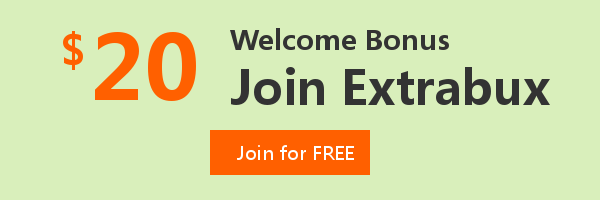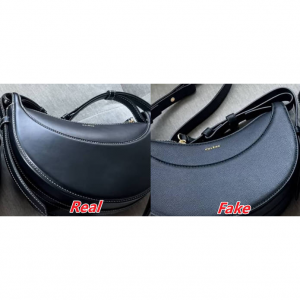
13 Cheapest Ways to Get College Textbooks (Free or A Big Discount)
13 Cheapest Ways to Get College Textbooks
1. Avoid the Campus Bookstore
Although you can buy every book you need at your campus bookstore, it’s likely to cost you way more than necessary. This is absolutely the most expensive place to source your college books from. These bookstores push up the price as they know you don’t just want to buy their books; you need to buy them. So I would recommend avoiding buying any books at your campus bookstore unless it is your absolute last resort.
2. Looking for free text books on your university's library
Sometimes you can find free text books on your university's library. Most libraries carry textbooks or they can get you the textbook you're looking for from another library through the interlibrary system. The trick is you need to get to your school's library as soon as possible before other students scoop up all the free books.
3. Borrow the textbook from a friend and take it to your local copy place
Have them scan the pages and upload it to a flash drive. This service is comparatively inexpensive and you'll have a digital copy of your textbook.
4. Share textbooks with your classmates
Consider pooling resources and sharing textbooks with your peers who are taking the same classes. If your professor doesn’t mind, you could try splitting the cost of a textbook between two to three other classmates and rotate ownership of the reading material outside of classes. While it may require some coordinating, like scheduling study sessions or making sure everyone has fair access to the books, the savings can be worth it when you share the purchase price.
5. Buy second-hand textbooks from your fellow college students
This method can take a little forward planning, but it can be a good way to find heavily discounted books without ever having to shop online. During the semester before your class is due to start, seek out students who are currently enrolled in the class and see if they will be willing to sell their books to you when the time comes. To find the students who are in the class you're going to take next semester, you can:
Approach the professor and tell them your plan to buy textbooks from fellow students and see if they can introduce you to anyone.
Post in your student community groups or year groups on Facebook to see if anyone has the textbook you need. Some college campuses even have their textbook exchange groups. If you see one of those, join it right away; they can save you a ton of money.
You can buy and sell pretty much anything in your local area on Craigslist, and textbooks are no exception. There could be students in your area listing exactly the book you need.
Post an ad on the campus noticeboards letting people know that you’re in the market for used textbooks? Leave an email address and see if anyone with the right books gets in touch.
6. Buy used textbooks for a big discount
Another option to help you save on textbooks is to buy used books that are in good condition. You can find them for a fraction of the cost from your college bookstore, local bookstores, and online. But in many cases, purchase used textbooks purchased online are more cheaper than buying from a brick-and-mortar store. There are many trusted and reputable e-commerce websites that can help you find the used textbooks you need at an affordable price, such as:
Amazon: among the biggest names in online book retailers, Amazon sells textbooks at up to 30% off new titles and 90% off used titles. You can search for books via ISBN, author, or title, and you can even browse by subject matter. In recent years, Amazon has begun offering textbook rentals and even digital textbook options. When you’re done, you can exchange your books directly through Amazon, making the process as easy as possible.
Textbooks.com (Up to 5% cashback) is one of the easiest-to-use retailers for used textbooks anywhere on the web. It claims to have more than 10 million textbooks in stock. In addition to tons of offerings on new and used titles, Textbooks.com also allows you to download eTextbooks for hundreds of titles. The site advertises prices up to 90% off and provides free shipping on orders over $25.
eBay (Up to 4.6% cashback)has tons of textbooks, both new and used. It’s often a great place to find used books directly from other college students who have already finished the semester. There are some great bargains to be had, especially on Auction style listings that sell to the highest bidder.And of course, you can use eBay to sell your textbooks once you’re finished with them too.
AbeBooks (Up to 5% cashback) has been in the business of helping school, college and university students to find and buy cheap textbooks online since 1996. Thousands of independent booksellers - many of them local bookstores - list their new and used textbooks for sale on AbeBooks's site. They guarantee savings of 50–90%.
Barnes & Noble sells new and used college textbooks at discounts. You can easily save up to 80% off of titles by buying with them.If you want to save even more on your books next semester, you can rent them, and Barnes & Noble offers textbook rental to boot. You can return your books with free shipping, and if you wind up not needing the texts? You have as many as 21 days to return the books free of charge (except for a $5 return fee).
ValoreBooks.com is the best place to buy cheap textbooks and sell textbooks online. College students can find cheap textbooks from our marketplace sellers and sell used books back for more with their online textbook buy back program.
eCampus.com (Up to 10% cashback) is a premier online retailer of new, used and electronic textbooks for sale or rent, study materials and book buyback services. You can save up to 90% on the cheapest textbooks.
Alibris (Up to 5% cashback) features thousands of textbooks with up to 80% discount.There are many ways you can save on textbooks at Alibris. Search for used textbooks, textbooks with free shipping, as well as 99c discount textbooks, or apply book coupon codes to your cart and keep an eye out for textbooks on sale.
Better World Books(Up to 5% cashback) offers a wide selection of used textbooks at the lowest prices. You are sure to find what you need for the semester or school year. You can browse textbooks by category or simply search by author, title, or ISBN in the search bar.
If you like want to buy textbook fromthese sites, don't forget to sign up at Extrabux!(What is Extrabux), then you can enjoy up to 10% cashback on your order from Extrabux! Sign-Up Bonus: Free to join it & get a $20 welcome bonus!
7. Consider a textbook rental service
Many students can relate to the feeling of wasting their money on a book that’s only going to get them through the semester. If you’ve felt this as well, renting is a great way to reduce the cost of investing in textbooks. There are many sites offering online or hardcopy rentals for the length of your semester.
The leading textbook rental service is Chegg. Chegg users can rent a textbook for a semester (125 days), a quarter (85 days), or for 60 days. The company guarantees that the books it rents will never have stains, water damage, missing or loose pages, or writing within the book. Other textbooks renting site, like: Amazon, Campus Book Rentals, Knetbooks (Up to 8% cashback) are also good option for renting textbooks.
The only thing to keep in mind with textbooks renting is that you cannot be late with your returns. Most websites will automatically convert late rentals into purchases, charging your credit card for the full amount of the book. In addition, If you’re considering textbook rental programs, make sure you’re using an apt comparison. Rather than comparing the rental price against the new or used price, compare it against that price minus the average buyback amount. For example, let’s say that a rental seems like a bargain at $16, when the book is $80 new. However, if you can buy the book used for $61 and then sell it yourself for, say, $55 at the end of the semester, you’d wind up $10 in the hole by renting the textbook. Always do the math and see what your best bet would be.
8. Check a price comparison site
If you spent all your time looking through every textbook store and site in the world, you’d have skipped the first half of the semester by the time you found your perfect price.That’s where a price comparison site comes in. These comparison sites are basically just like Kayak for textbooks: they aggregate book prices from all the major sellers, give you options for buying new/used, renting, or getting e-book versions, and even calculate shipping rates, so you can find the cheapest possible option for the textbook you need. A few good price comparison sites for textbooks are:
Pay attention: although sites like these can make your life a whole lot easier and save you heaps of time, they don't list every single textbook across the internet. There are still listings that won’t show up in the search results
9. Look for open source textbooks
Many professors are starting to realize what a burden expensive books are on students.More and more teachers are instead using open source texts for their classes. Open source textbooks are licensed by authors and publishers to be freely used and adapted. You can download, edit and distribute them at no cost.It’s one of the best ways to get cheap textbooks for college.To find out if your school or a particular professor uses open source books, check with the school library. Or, ask the instructor directly. You can get open source textbooks from the following site:
They offer high-quality texts that are peer-reviewed by industry leaders, just like the expensive books.
10. Try eBook Versions
Many students are finding that they can save significant cash – by purchasing their textbooks in e-book format. Google, Amazon, and Scribd offer some free books online in addition to their discount book selections. Some schools may have such books too. For example, the Massachusetts Institute of Technology hosts a free version online of "The Odyssey". If the book you are downloading is a translation, just be sure to check with your professor that the version works for your class.
In addition, you can get big discount on textbooks from VitalSource (Up to 3% cashback). VitalSource is the world's largest provider of digital course materials.Their catalog includes over 90% of the core textbooks in use today as eTextbooks, as well as the largest online catalog of eResources and digital course materials available for instant access. You can enjoy the benefits of anytime, anywhere access to important course materials from laptops, many tablets and even smartphones, with or without an internet connection. Plus, they save up to 80% compared to the price of print textbooks.
11. Looking for older edition
Textbooks get new, updated editions every so often. But unfortunately, the new edition of any textbook is likely to be the most expensive. If you want to save money on books, but do not want an eBook, try getting the previous edition of a book online or through your college’s library.This ensures that you are only paying a fraction of the cost, or nothing at all, while getting the same educational experience.
Because many new editions don’t vary much from the previous one, especially when it comes to subjects that always remain the same, for example, Ancient History. Unless there have been some groundbreaking new discoveries recently that are going to be covered in this semester’s syllabus, then the key information will all be the same. You can email your professor before the new semester starts and asking if older edition is ok.
Pay attention: you probably should get the latest edition of a textbook if it’s going to have problem sets that will be used as homework in your class. Math and science books are more likely to fall into this category.
12. Check for international editions
While most international editions have different covers, they usually have the same text and pagination as their U.S. counterparts. Images may be black and white, and the paper may be lower quality. However, international editions can cost at least 50% less than U.S. versions. You can use TextbookRush to find international editions of some of your required books. It offer full refunds if the content doesn’t match the U.S. version.
13. Resell your textbooks
The best part about buying textbooks is that you can sell them back when you’re done. By selling your used books, you can save a fortune over a few semesters, and it can make your overall cost of textbooks next to nothing! Skip the school bookstore and sell your books online. You’ll get more money than the bookstore would offer. Here are the most popular sites that allow you to sell your used textbooks when you’re done with them.
You'll notice that many of them also appeared on the list of cheaper places to buy and rent textbooks too.

Extrabux is an international cashback shopping site, offering up to 30% cashback from 10,000+ Stores!
Squarespace, SkinStore, MATCHESFASHION, The Wall Street Journal, NordVPN, Visible, Armani Exchange, Sam's Club, PUMA, AliExpress, Card Cash, NET-A-PORTER, Udacity, Udemy, Selfridges, LOOKFANTASTIC, Vimeo, Coach Outlet, lululemon, PrettyLittleThing, Booking.com, Ripley's Aquarium, iHerb, Groupon, etc.
Join to get $20 welcome bonus now! (How does Welcome Bonus work?)
Recommendation
-

Is Turkish Airlines Good for International Flights?
-

10 Best & Stylish Winter Coats for Women on NET-A-PORTER in 2025
-

Top & Best 12 Sneaker Apps/Websites for Raffles, Releases & Restocks in 2025
-

7 Best Gift Card Exchange Sites - Buy, Sell and Trade Discount Gift Card Safely and Instanly!
-

Top 9 Professional Skincare Brands for Licensed Estheticians 2025












